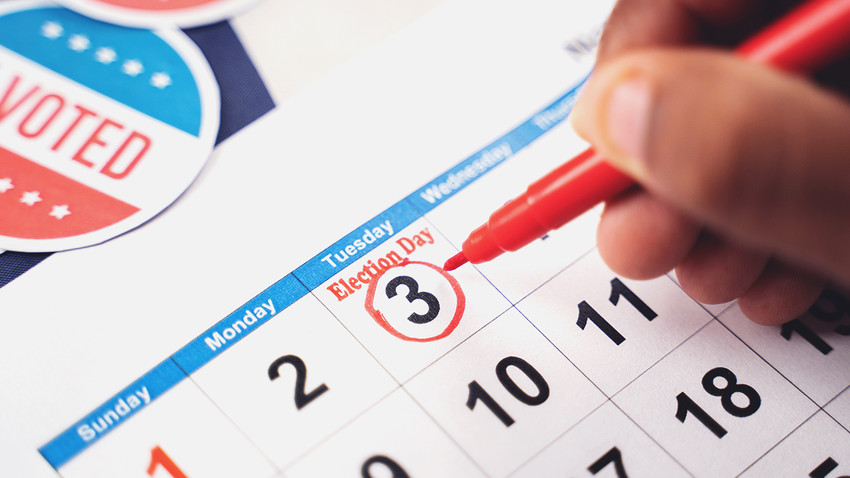
Before We Vote (or Is It After?)
Let me be an echo chamber for a moment—there hasn’t been an election like this in modern memory. So they tell us. And who could disagree? By some estimates, 69 million early voters have already exercised their prized right. That represents over half of the total votes cast in the 2016 presidential election! And Election Day is still a week off. Go figure.
But the pundits cannot figure it out—because there’s no way to predict the outcome of what will likely be the most contentious and divisive presidential race in U.S. history. And given the record mail-in voting (thanks to the pandemic), this season of uncertainty may linger long past the last ballot cast next Tuesday night.
How should we as Seventh-day Adventist Christians approach next Tuesday?
Church historian Douglas Morgan, in his fascinating entry “Politics and Voting” in the new Ellen G. White Encyclopedia, describes how the initial “sentiment against voting and political involvement” in the early years of this apocalyptic movement shifted with the advent of the Civil War. In 1865 the General Conference session resolved “that it could well be ‘highly proper’ for a Second Advent believer to exercise the influence of his vote ‘in behalf of justice, humanity, and right’” (1037). Ellen White “shared this consensus,” and reacted strongly to an effort by “men of intemperance” to encourage Battle Creek Adventists “into continuing their avoidance of the polls.” To not vote “in this context would be to abet evil by default” (1037).
But hers was not a blanket endorsement of politics. “If the political realm presented opportunity, even obligation, for Christian service, it also presented dangerous influences that threatened to mold those involved, rather than vice versa” (1038). She was clear and “impressed on believers the principle that citizenship in Christ’s kingdom must animate and control their interaction with the political powers of earth” (ibid). As a consequence of a populist surge across the nation in 1896, one political party “made central a proposal for coinage of silver currency as a panacea for the economic injustices suffered by the nation’s rural and working classes.” Ellen White, while supportive of economic justice for the poor, warned this plan would have a very opposite effect. “The direction from the voice of the Son of God, she declared, is ‘ye will not give your voice or influence to any policy to enrich a few, to bring oppression and suffering to the poorer class of humanity’” (1038).
As for competing political parties, in 1897 she boldly wrote, “‘there is fraud on both sides,’” and urged instead “those for whom the Lord Jesus is ’the Captain’ to ‘file under His banner’ and avoid ‘linking up with either party’” (ibid). Vote? Of course. She even counseled young college students: “‘Have you thoughts that you dare not express . . . that you may sit in deliberative and legislative councils, and help to enact laws for the nation? There is nothing wrong in these aspirations. You may every one of you make your mark’” (1038 emphasis supplied). But Adventists, she reminds us, “are to stand as subjects of Christ’s kingdom, bearing the banner on which is inscribed, ‘The commandments of God, and the faith of Jesus’ [Revelation 14:12]” (1038).
Wise counsel for us in the twenty-first century. Yes, we exercise our right to vote as citizens of this land or any other land. We express our voice and convictions for a myriad of issues at the ballot box. But let us do so with two abiding realizations. First, we await no human savior. Politics at its best is the act of legislative compromise in order to satisfy a majority of citizens. But sadly the very times and technologies of our social media driven world have shaped us into combative, argumentative adversaries with anyone or everyone who sees life differently. And we quickly coalesce with other loud voices from whom we draw strength. Any one who emerges from this raucous process can hardly be an adequate savior. That sad reality will not be undone.
Second, we are blood-bought citizens of Christ’s eternal kingdom. And “the politics of Jesus” (as John Howard Yoder expressed it) preclude a “winner take all” mentality. In fact Christ Himself infuses us with His own “loser take all” spirit: “‘For whoever wants to save their life will lose it, but whoever loses their life for me and for the gospel will save it’” (Mark 8:35). Supreme love for God and impartial love of our neighbors can only thrive through a spirit of self-emptying, a spirit sadly AWOL in this season of American politics. But you and I can be different—must be different. Without compromising deeply held convictions, it is still possible to be loving, compassionate and kind citizens—men, women and young who value the heart more than the vote, who walk along side rather than always taking sides.
So go ahead vote, if you haven’t already. But let your face tell the truth: “For God made his light shine in our hearts to give us the light of his glory displayed in the face of Christ” (see 2 Corinthians 4:6).